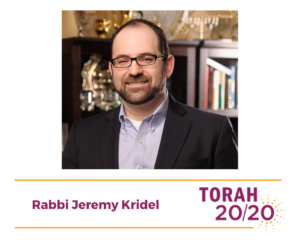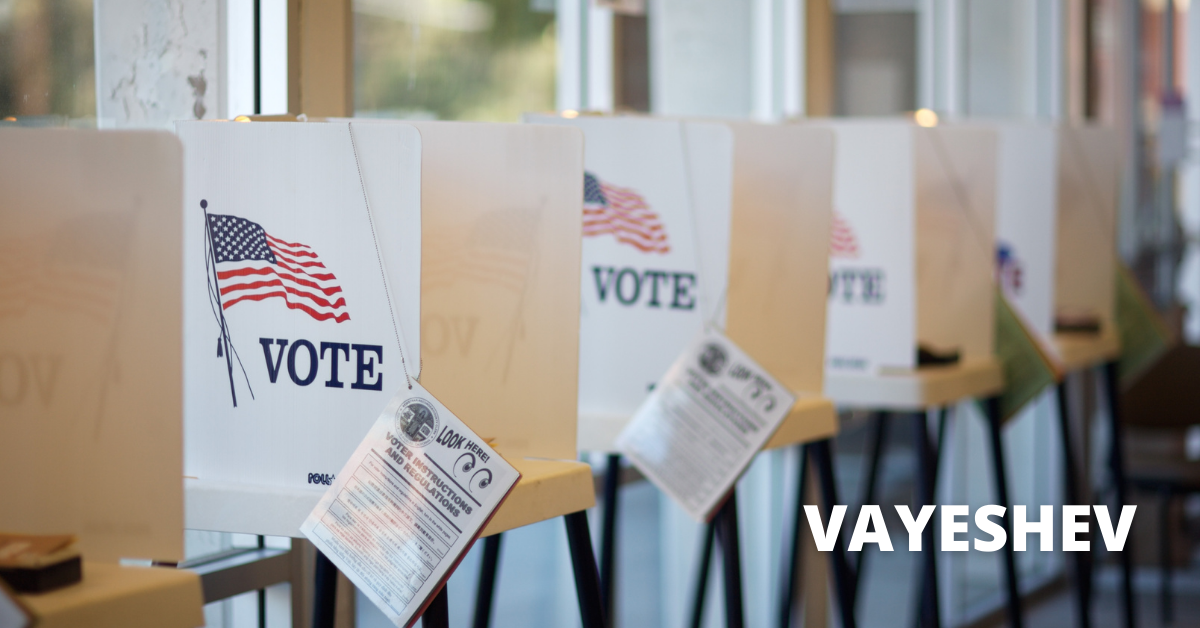A D’var Torah for Parshat Vayeshev by Rabbi Jeremy Kridel
“And I — where am I to go!?” (Gen. 37:30, trans. Everett Fox) Thus Reuben, the eldest of Jacob’s sons, cries out after Joseph is taken into slavery in Parshat Vayeshev, sold during Reuben’s absence.
A closer look at Reuben’s story reminds us: Justice delayed is justice denied.
Joseph’s behavior antagonizes his brothers, and his prophetic dreams are the final straw. Reuben is with his brothers when they plot to murder Joseph, but he tries to preserve Joseph’s life by changing his brothers’ plans, urging them to consign Joseph to an empty pit. Reuben’s plan to go back, retrieve Joseph, and return him to their father fails: Reuben is mysteriously absent from the action when Judah persuades his brothers to sell Joseph into slavery. Reuben returns to the pit to find it empty and Joseph gone. It is then that he cries out, perhaps more for himself than for Joseph.
Midrash Rabbah suggests that Reuben was absent because he was occupied with repentance for his treatment of Joseph. (Genesis Rabbah 84:19) Rashi claims that Reuben was attending to Jacob that day, and thus wasn’t present to stop Joseph’s sale. (Rashi on Gen. 37:29)
Neither explanation is satisfying. Joseph is in mortal danger, and Reuben walks away, returning too late to save Joseph despite the obvious risk to Joseph of leaving him with people who want him dead.
“All’s well that ends well” — Joseph’s ascent to power — doesn’t make his enslavement just.
Justice delayed is justice denied.
Sign up to receive Torah 20/20 in your inbox each week.
Those who would restrict access to voting know this. The most recent election reminded us that we have lived through more than a decade of new forms of voter suppression, including new restrictions on who can vote and when, and the spread of voter identification laws.
For its part, the U.S. Supreme Court recently gave voter suppression a shot in the arm by invalidating a portion of the Voting Rights Act of 1965. Section 5 of the Act set out a preclearance procedure that requires jurisdictions with a history of enacting discriminatory voting laws based on race, skin color, or language group to obtain from a three-judge panel or the U.S. Department of Justice preclearance of any laws that might affect voting rights. Section 4(b) identifies the criterion: jurisdictions are subject to the preclearance requirement if fewer than 50% of its voting-eligible population was registered to vote as of November 1, 1964.
Until 2013, that is.
In 2013, the U.S. Supreme Court decided Shelby County v. Texas. Chief Justice Roberts, writing for the Court, stated that the United States’ voting rights situation had improved so much that Congress’s 2006 reauthorization of the Voting Rights Act, which continued to use the 1964-based preclearance criterion in Section 4(b), was unconstitutional.
Congress has not acted to replace Section 4(b) with something that might pass muster with the Supreme Court; the House of Representatives in 2019 passed a reauthorization bill that would have restored and refined Section 4(b), but the bill has languished in the Senate. Absent the preclearance process, states — often ones that were once subject to the process — have stepped into the void by enacting new restrictions on voting rights. Voters are left to challenge infringements only after being disenfranchised.
Voting rights were in the pit, and the Court walked away from the danger.
Find more commentaries on Parshat Vayeshev
If you are disenfranchised by a voter identification law and must sue after the law that takes your voting rights has taken effect, how many years of elections might you miss while pursuing a court case to restore your access to the ballot? In one ongoing voter identification case in Alabama, the answer is: five years and counting, with a 2015 lawsuit still unresolved.
In the meantime, there are no do-overs for disenfranchised voters: Their votes go uncast, their voices unheard. Suing afterward is justice delayed and thus denied.
We might feel as though we have just barely avoided the end of democracy in the United States. Yet democracy is teetering at the edge of the pit. We must act now to reverse our downward slide for the next election, and the one after that. We must act now to ensure that justice is not delayed — and thus denied — to the disenfranchised.
Else we may find ourselves looking at an empty pit where democracy once languished, left only to cry with Reuben: “And I — where am I to go!?”
Jeremy Kridel is rabbi at Machar, the Washington Congregation for Secular Humanistic Judaism, in Washington, D.C. Before rabbinic ordination, he received his Juris Doctor (cum laude) from Indiana University Maurer School of Law -Bloomington, and served as a judicial law clerk for seven years with the Indiana Court of Appeals.


